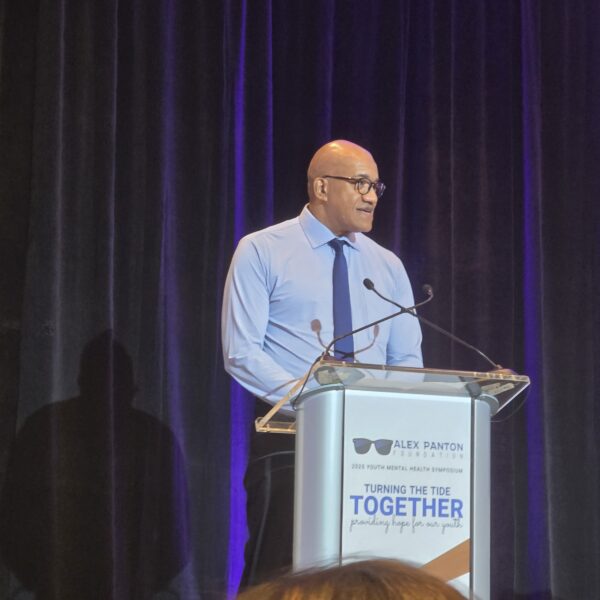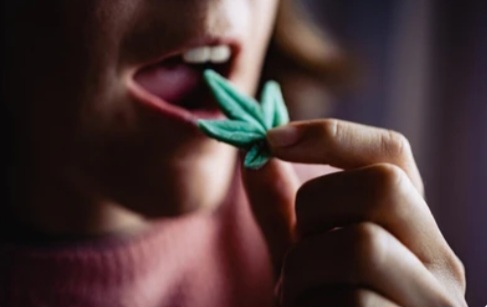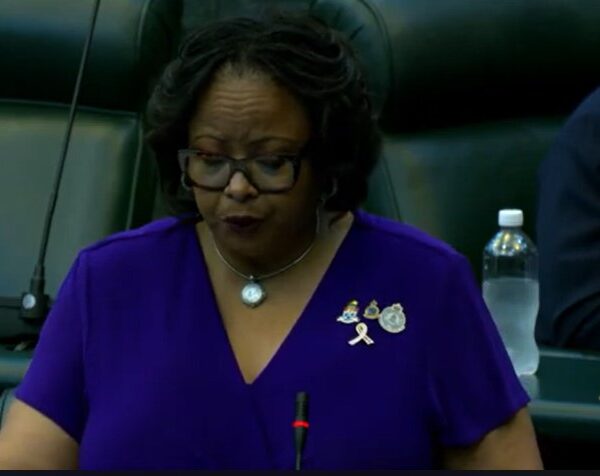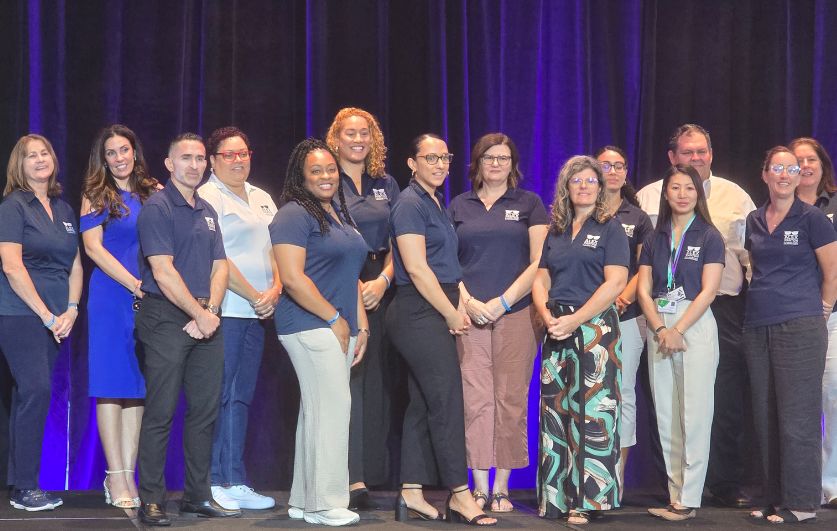
Participants at the Alex Panton Foundation Symposium
|
Getting your Trinity Audio player ready...
|
By Alric Lindsay
At the Alex Panton Foundation Youth Mental Health Symposium held at the Ritz-Carlton, Grand Cayman, on February 15, 2025, Dr Chantal Basson presented data showing that the number of young people seen at Alex’s Place increased from 148 in 2023 to 269 in 2024. Commenting on the 2024 statistics, Basson said it “was an unprecedented mental health presentation year for [the] HSA.” Overall, the statistics reflected visits for anxiety, depression, ADHD, suicide attempts and suicide ideation.
Breaking down the data
Basson broke down the data, sharing that 269 young people visited Alex’s Place a total of 2,658 times in 2024, an increase of almost 155% from 2023.
Of the 269 young people visiting last year, 97 were male, and 172 were female, with males visiting 728 times and females visiting 1,930 times.
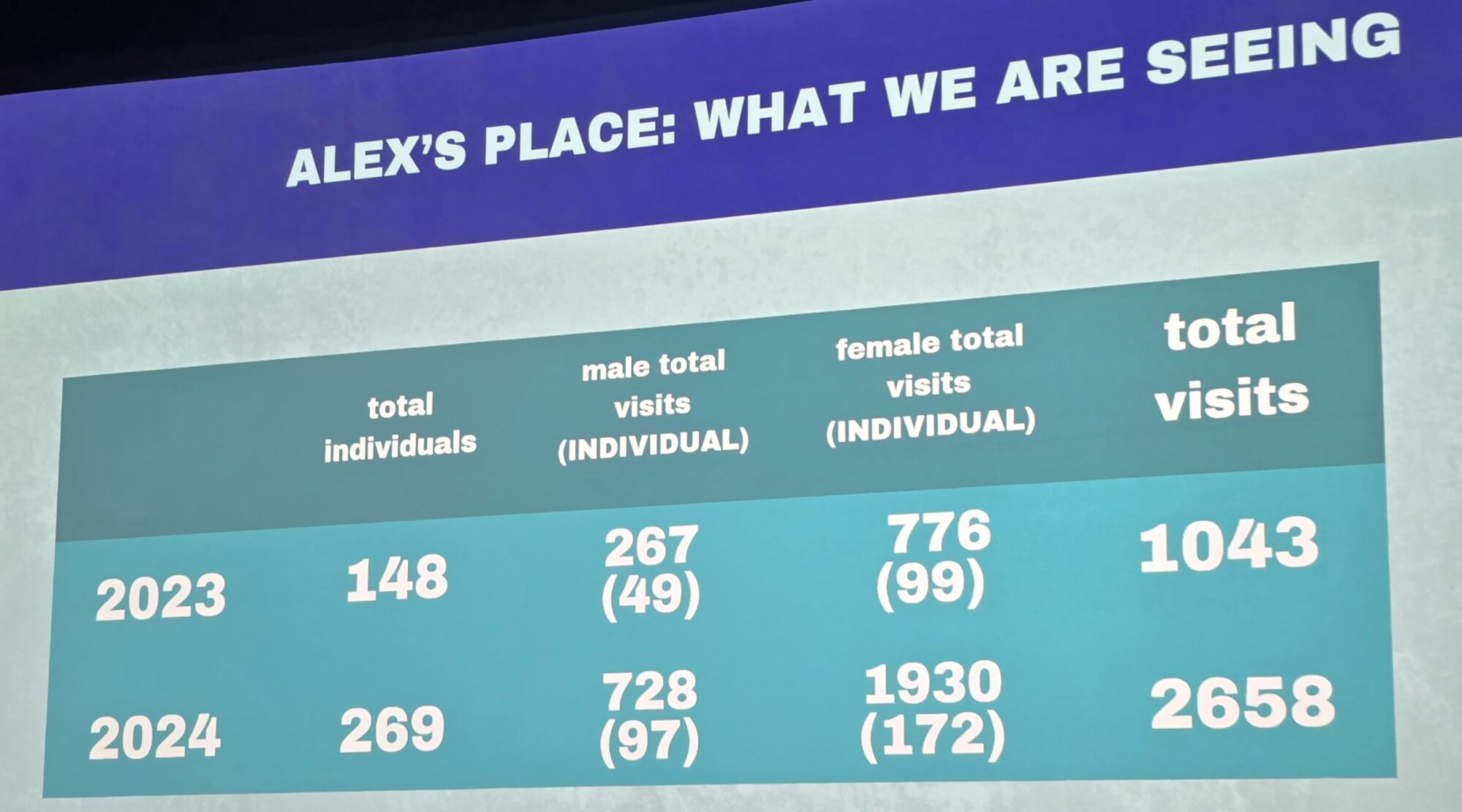
Why there are more female visits than males
While the data reflects that more males visited Alex’s Place than females, Basson explained that “whilst you might think maybe boys are suffering less than girls, the data actually shows that isn’t the case.”
She shared further:
[Boys] feel that they can talk much less about their mental health.
It’s weak to talk about emotion, it’s weak to cry.
And that is something that we have got to desperately quit change.
Challenges discussed during visits
Speaking briefly about challenges expressed during the visits, Basson said that “in order of presentation, the most common presentation is anxiety,” followed by depression, suicidal ideation, ADHD and then people presenting with an actual suicide attempt. The data for each diagnosis is shown in the below table.
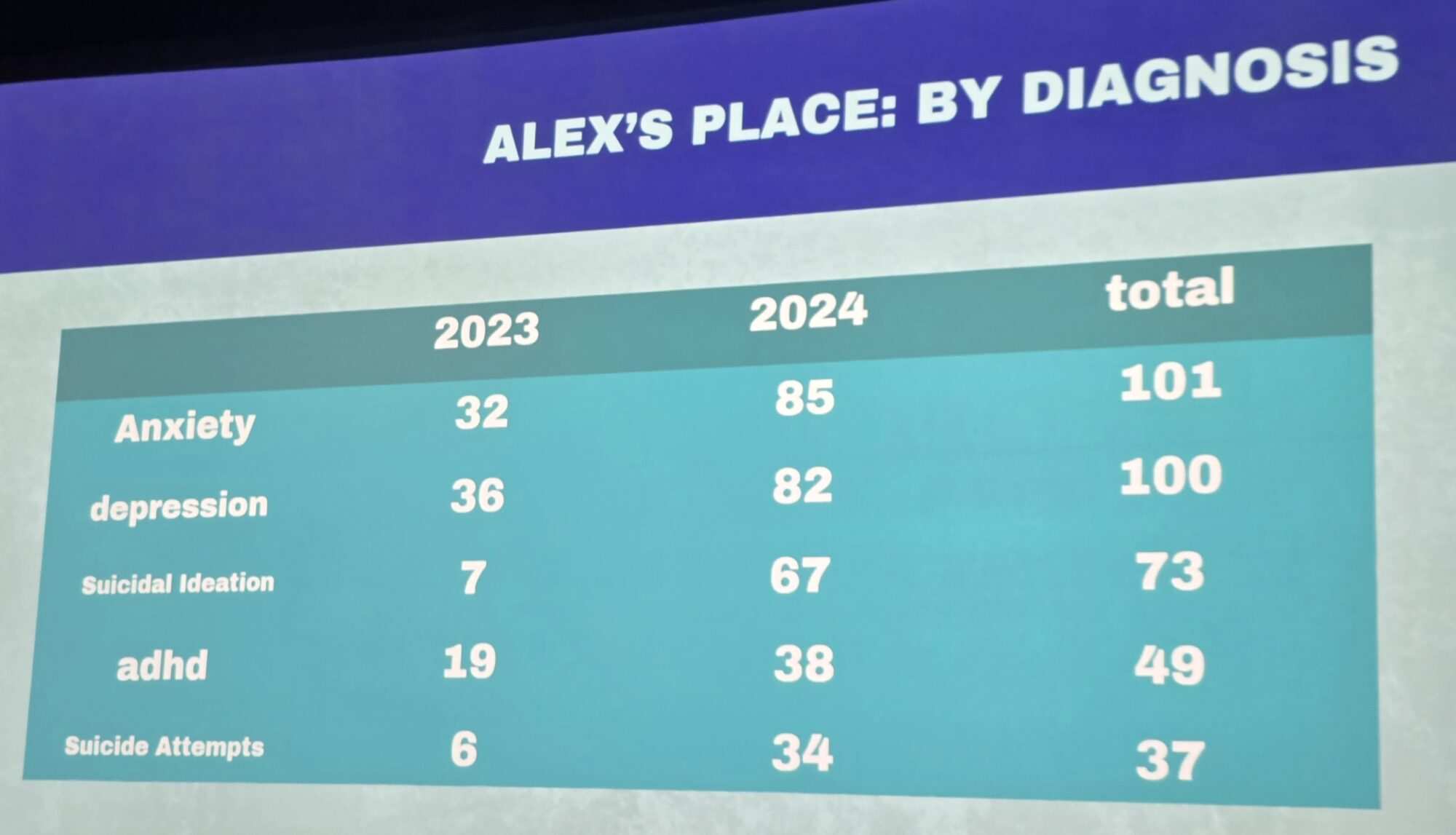
Analysing the above data, Basson said it means that “We’re really seeing people either talking about it more or actually feeling this more.”
She added that although the data “can make us feel like it’s dark because it highlights the struggles and the challenges,” it actually represents progress. This is because more young people feel more comfortable talking about the challenges they face. They are finding this comfort at Alex’s Place.
She continued:
So, I don’t want this data to pull people down, I want it to lift us up because from here it presents great opportunity for us to actually do something positively about it.
Looking deeper into root causes
Delving deeper into what was attributed to the challenges young people face, Basson discussed the impact of relationships, hostile school environment, drug use, social media, internalizing issues, spaces, cultural and other issues.
Regarding parent-to-child relationships, Basson said:
So children are saying, young people are saying, my parents are comparing me to other people all the time.
They’re also saying, I cannot talk to my parents.
Basson continued:
[Young people say] I feel blamed and shamed when I talk.
If I express myself, it becomes an argument and I’m seen as disrespectful.
My parents don’t listen, they don’t try to understand me.
I want them to listen to me, not just to be told what to do.
I know my parents are trying to help me, but they’re just pushing me away in the way that they are doing it.
Basson concluded:
So, I know what this feels like and it’s really heartbreaking to see the extent of it here. And I really want this to change. And I know parents love their children, I know they do. And I know that they want help.
Concerning peer relationships, Bassan shared:
Young people are saying relationships are draining because there’s so much drama.I can’t trust my friends because of dishonesty, jealousy and gossiping.
As a girl, I feel pressurized into sex.
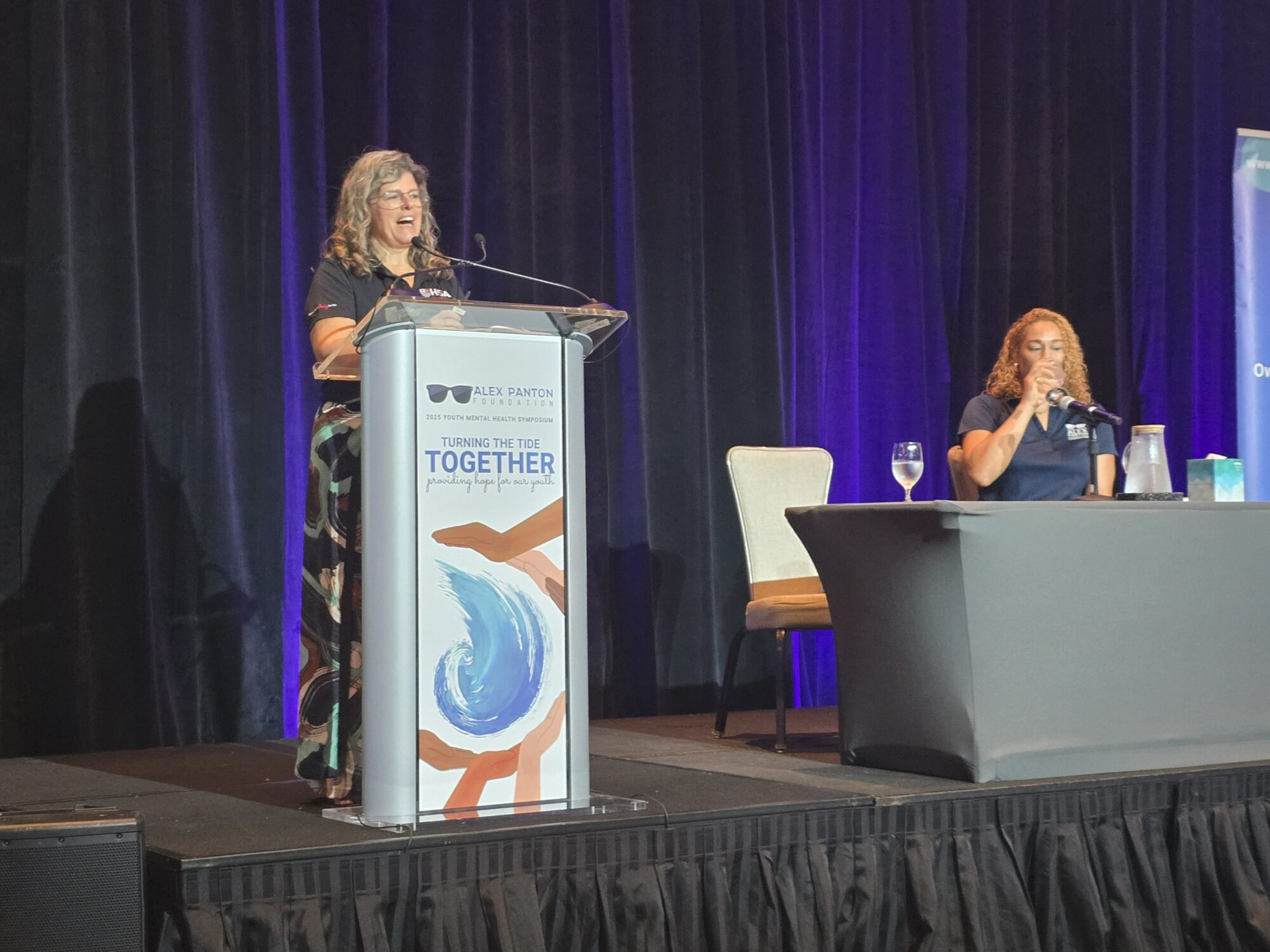
L-R: Dr Chantal Basson, Clinical Psychologist at Alex’s Place & Emily Kelly, Executive Director of the Alex Panton Foundation
Regarding young people’s relationship with themselves personally, Basson said:
We’re looking at 12 to 17 year olds here and they’re saying going through puberty is hard.
I’m changing so much. I have new emotions and I’m dealing with lots of internal changes and that’s really challenging.
Concerning their school environment, described as “hostile,” Basson said:
[Young people said] my teachers don’t understand me, they don’t help me, they don’t believe me, they don’t make me feel welcome in school.
There’s not enough mental health help in schools. We have amazing school counsellors, but there’s just not enough. There’s an inconsistency in rules being enforced.
Basson continued:
[Young people said] There’s bullying in school and it’s rife. I don’t feel safe to report it. When I report it… nothing was done.
In a couple of cases, there were young people who were being touched inappropriately in class and they were skipping class in order to get away from that and then they were getting in trouble for it. But nothing’s being done about that inappropriate touching. And that has got to stop.
Regarding things to do outside school, Basson shared:
There’s lots and lots of past activities that have been cancelled and people would come to me and say that we used to do this and there used to be that and there’s not anymore.
They’re saying there’s a lack of appropriate and affordable activities. We need something or somewhere for us teenagers to go at night, not just creating havoc in Camana Bay.
… we need some spaces.
Concerning social media, Basson explained that young people are saying it is causing them “major issues” and impacting their body image.
Basson added:
[Young people said] There’s mean comments, drama and even blackmailing. Online sexting and bullying are big problems for us.
And young people are saying, I’m addicted to my phone and screens.
They’re saying social media is making me do things that I don’t want to do. Having 24 access on social media is such a problem for me.
Turning to gender identity, Basson shared:
So young people are finding that homophobia and discrimination against young people in the LGBTQIA community is really impacting them. Young people are saying I can’t be myself for fear of rejection.
And I know some exceptionally brave young people in this community who are speaking up about this.
They’re also saying, my parents won’t accept me. I’ll be cast out of my home if I come out, or I have already been cast out emotionally because I came out.
Speaking of suicidal thoughts, Basson said:
… now what young people are saying is IWKM is used like OMG or lol… has become part of everyday language.
So, I want to kill myself. Like I don’t look right. IWKM has become my posture to see. It has become everyday language and when people are struggling, their voices get drowned out by that. So it’s very difficult to become heard when they are actually struggling.
Steps to address challenges
Regarding steps that policymakers and other stakeholders can take to address the foregoing challenges, Basson shared the following list of items:
- Use the information presented to influence how policies are made
- Have young people’s voices and a mental health understanding at the core of each government policy
- Explore parent-infant mental health programmes as a matter of urgency
- Work on how mental health is viewed and responded to in schools
- Work with partner agencies to get more help for young people and their mental health both inside and outside schools
- Explore legislating bell to bell smartphone free schools
- Arrange spaces and affordable activities for teens and young people as a matter of urgency
- Campaign to get young people out of their rooms and homes, off their phones and back to face-to-face contact



